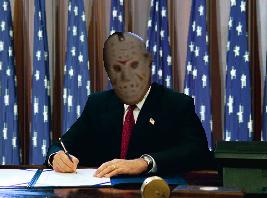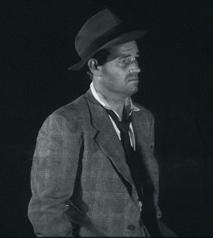Welcome to Omaha
 Tried to log onto Full Tilt today and couldn’t connect to the site. If you go over to the FTP website and look under “24/7 Support,” they have a tab for “System Status.” I took a peek there and saw the message “We are currently performing scheduled maintenance to increase our server capacity in order to handle increased traffic. Please check back soon!” So I assume all is well. Have to say, though, now that the UIGEA has become law, I have a slight apprehension whenever I log on to play that one day I simply won’t be able to access a site. Not sure what recourse I would have should that occur.
Tried to log onto Full Tilt today and couldn’t connect to the site. If you go over to the FTP website and look under “24/7 Support,” they have a tab for “System Status.” I took a peek there and saw the message “We are currently performing scheduled maintenance to increase our server capacity in order to handle increased traffic. Please check back soon!” So I assume all is well. Have to say, though, now that the UIGEA has become law, I have a slight apprehension whenever I log on to play that one day I simply won’t be able to access a site. Not sure what recourse I would have should that occur.Hopefully I’ll be able to get back onto FTP later this week for Event No. 7 of the Ante-Up Intercontinental Poker Series -- Pot Limit Omaha HL (scheduled for Thursday night). Have been brushing up a bit on Omaha here lately. There was a time when I exclusively played Omaha (High only), but it has been awhile. Was never completely up on how to play the split pot version, but I’m reviewing some of the basics in the hopes of not embarrassing myself on Thursday.
Not that long ago I picked up a copy of Bill Boston’s book, Omaha High-Low. Now I knew even before I got it that this wasn’t the best book from which to learn Omaha. Boston’s book has been around for a while -- fifteen years, I think -- with this newly-expanded version coming out just in the last month or so. I’d always been curious about it, mainly because the book includes a massive table that ranks what it calls “all 5,278 Omaha High-Low hands.” So when I found a cheaply-priced copy of the 2006 edition, I went ahead and picked it up.
Boston’s book has a number of serious problems, I’m afraid. There are some decent tips here and there regarding hand selection, but the book as a whole suffers mightily in several ways. It’s focus is hopelessly narrow. Boston’s so-called “research methodology” is seriously flawed. It contains quite a bit of unclear and/or misleading information. And it is badly written and edited. (If these things don’t matter to you, though, it’s terrific . . . !) Let me explain.
First off, Boston is only interested in fixed limit Omaha High-Low, so forget about learning anything here about the pot limit game. Also, just about all of his energy is focused on hand selection. There are cursory chapters about playing the turn and river, but neither of these include any but the most obvious advice, really. The chapter on playing the turn reminds us that at this point having the nuts usually isn’t sufficient -- i.e., we often need to have draws and redraws to continue. The chapter on the river seems to discount its own reason for being in the book at all, given that Boston’s basic advice is “At the river, you either make a hand and stay, or you fold -- it’s as simple as that.” Simple, indeed. There’s also a brief chapter about reading opponents in which Boston appears to have borrowed some of Hellmuth’s animal types to make yet another ambiguous, vague point. (I could be wrong, but I do think this latter chapter was one that didn’t appear in the original edition.)
The fact is, Boston isn’t really interested in considering Omaha High-Low in ways that are not mathematically-based. The main focus of the book is the chart ranking 5,278 hands that occupies two-thirds of its length. He arrived at the chart by running simulations using Wilson Software’s Turbo Omaha High-Low Split program. He says he ran at least 100,000 simulations per starting hand, and up to 2 million simulations for hands containing an ace. (He doesn’t explain why he ran more simulations for some hands than for others.) Additionally, in the Wilson program he identified the player playing these hands as “tight,” meaning that the player would only select the best starting hands to play.
Right from the get-go one can see how Boston’s methodology is hopelessly skewed -- rather than run an “objective” simulation that would compare starting hands against one another, Boston already is imposing a different, unspecified criteria (the one followed by Wilson’s “tight” player) before running his simulations.
There are further problems, here. Boston only divides starting hands into three categories: double-suited, suited, and non-suited. “Non-suited” is obvious enough -- you have four cards of different suits. “Double-suited” is defined as the two highest pocket cards being suited with the two lowest. Fine. However, Boston defines a “suited” hand as one in which the highest pocket card is suited with one other card. The problem is, Boston doesn’t bother to clarify whether or not that hand might contain a third and/or fourth card of that same suit. Obviously one is going to be less inclined to gun for a flush if one is already holding four of the desired suit in one’s hand.
In fact, reading through the text and noting all of his examples, Boston appears completely unaware (or unconcerned) that one could be dealt a hand with three or four of the same suit. This omission reminds me a bit of a book on Hold ’em odds written by a probability expert that I once read in which the author went ahead and provided the odds not just for 2-10 players, but on up to 23 players. In that case, it seemed clear the author hadn’t played much Hold ’em. Boston does play Omaha, however, and so there’s no explanation for his having missed this important point.
That “5,278 hands” figure is misleading, then. There are more possible starting hands than that. The table nevertheless remains interesting to consider. One sees clearly how the rankings underscore the importance of having four cards that “work together,” as well as the importance of scoop potential. (Incidentally, the best Omaha hand according to Boston is A-A-2-3, double-suited. The worst? 2-2-2-2.)
Finally, Boston really needs an editor (if not a ghost writer). Redundancies abound, as do blatant howlers that even a novice Omaha player like me can spot. Not once but twice does Boston confidently claim that “It is impossible to be dealt four cards that can not [sic] make a straight, flush, or full-house.” Huh? Try to make a flush with a non-suited hand. Try to make a straight with 2-2-2-2. [EDIT (added 10/28/06): After rereading that sentence ten more times or so, I finally see how it is intended -- that every hand in Omaha High/Low can make at least one of those three. Still, confusing.] Boston’s point here -- indeed, his basic thesis (reiterated endlessly) -- is that because there are so many possible hand combinations out there, one needs to be very cautious when choosing hands to play. The point would’ve been a lot more convincing, though, without the incorrect [EDIT (added 10/28/06): or, rather, potentially misleading] claims.
Can anyone recommend any of the other Omaha books? I've seen books like Mark Tenner and Lou Krieger’s Winning Omaha/8 Poker, Mike Cappelletti's How to Win at Omaha High-Low Poker, and Ray Zee’s book High-Low-Split Poker, Seven-Card Stud and Omaha Eight-or-better for Advanced Players all receive favorable reviews. Any suggestions?
I’ll probably be putting Boston’s book back on the shelf Thursday night while I play in the tourney. Provided I can log on, that is.
Image: Omaha Hi-Low (2006), Bill Boston, Amazon.
Labels: *by the book, Ante Up, Bill Boston, Omaha High-Low, Omaha/8
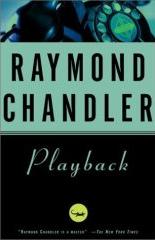

 . With an “M” of not even three, I had all but decided that any pair would probably do, so as I awaited the action to come around to me, I had already mentally prepared to push. I watched as the super short stack went ahead and put his last 535 in the pot. Then I saw the fifth-place player push all-in with his remaining 3,543. Then I saw the button also push his entire stack -- around 11,000 -- in the middle.
. With an “M” of not even three, I had all but decided that any pair would probably do, so as I awaited the action to come around to me, I had already mentally prepared to push. I watched as the super short stack went ahead and put his last 535 in the pot. Then I saw the fifth-place player push all-in with his remaining 3,543. Then I saw the button also push his entire stack -- around 11,000 -- in the middle. 



 , and the button knocked out three of us at once having made aces up with big slick.
, and the button knocked out three of us at once having made aces up with big slick.


 . The flop looked terrific --
. The flop looked terrific -- 

 . According to
. According to  . Still right at 81%. Unfortunately, the river was the
. Still right at 81%. Unfortunately, the river was the  , and I found myself finishing second, winning exactly what the guy who finished thirty-sixth received. Nada.
, and I found myself finishing second, winning exactly what the guy who finished thirty-sixth received. Nada.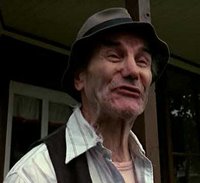

 . (Again, 6-max limit HE, $0.50/$1.00.) First two players fold, the cutoff limps, and the button raises. The SB folds. I call the raise, as does the limper, so we’ve got three to the flop ($3.25 in pot).
. (Again, 6-max limit HE, $0.50/$1.00.) First two players fold, the cutoff limps, and the button raises. The SB folds. I call the raise, as does the limper, so we’ve got three to the flop ($3.25 in pot).  and the action is on me. Big Slick may be lurking. (I’ve written before about players making “
and the action is on me. Big Slick may be lurking. (I’ve written before about players making “ , a card I did not want to see. Even before the limper bets and the button raises, I was certain I was no longer in front. Now I’m caught in the chip sandwich -- if I call, I’m probably looking at more raises and ultimately putting in four bucks to see that river card.
, a card I did not want to see. Even before the limper bets and the button raises, I was certain I was no longer in front. Now I’m caught in the chip sandwich -- if I call, I’m probably looking at more raises and ultimately putting in four bucks to see that river card.  . Sweet sassy molassey. Your humble donkey bet out, was called by both players, and scooped $22.25 (giving fifty cents to the rake). Knowing full well I’d rivered them both, I didn’t even bother to look up what they had until today. Limper had
. Sweet sassy molassey. Your humble donkey bet out, was called by both players, and scooped $22.25 (giving fifty cents to the rake). Knowing full well I’d rivered them both, I didn’t even bother to look up what they had until today. Limper had  for the second-best straight. Button indeed had
for the second-best straight. Button indeed had 
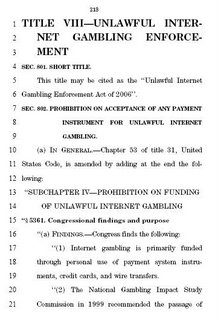
 , then seeing a flop of
, then seeing a flop of 
 . And suddenly I’m interested again . . . .
. And suddenly I’m interested again . . . .